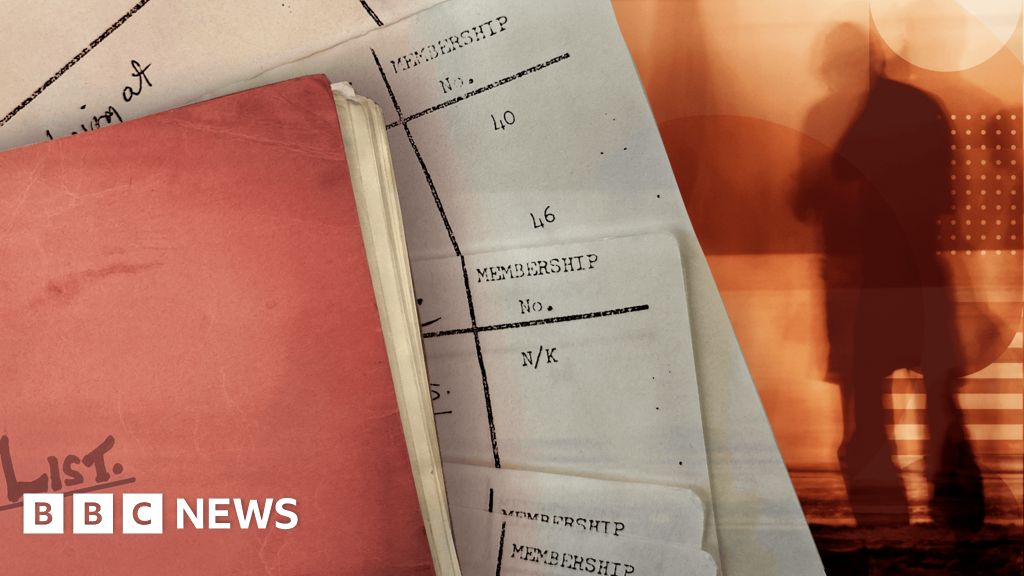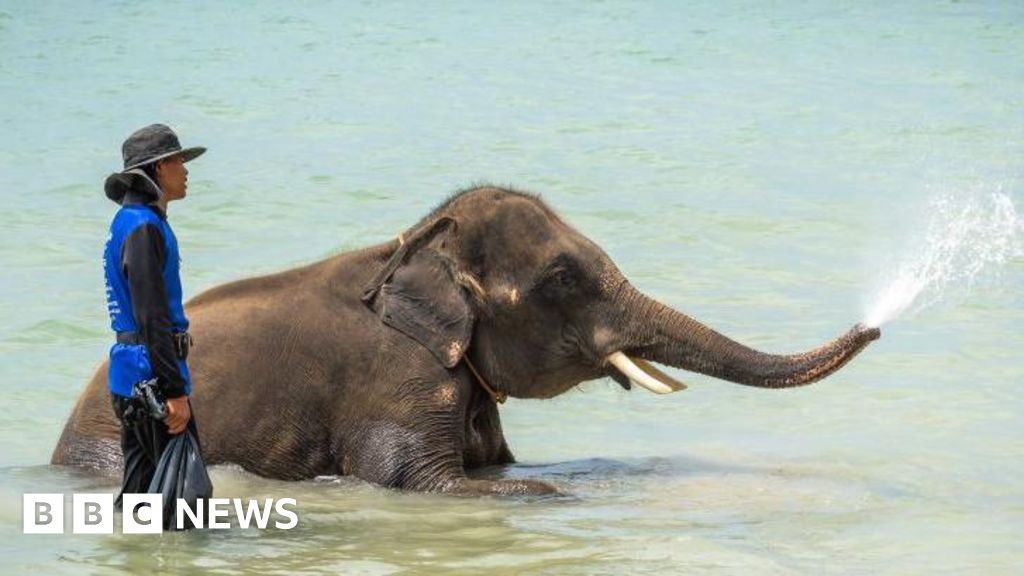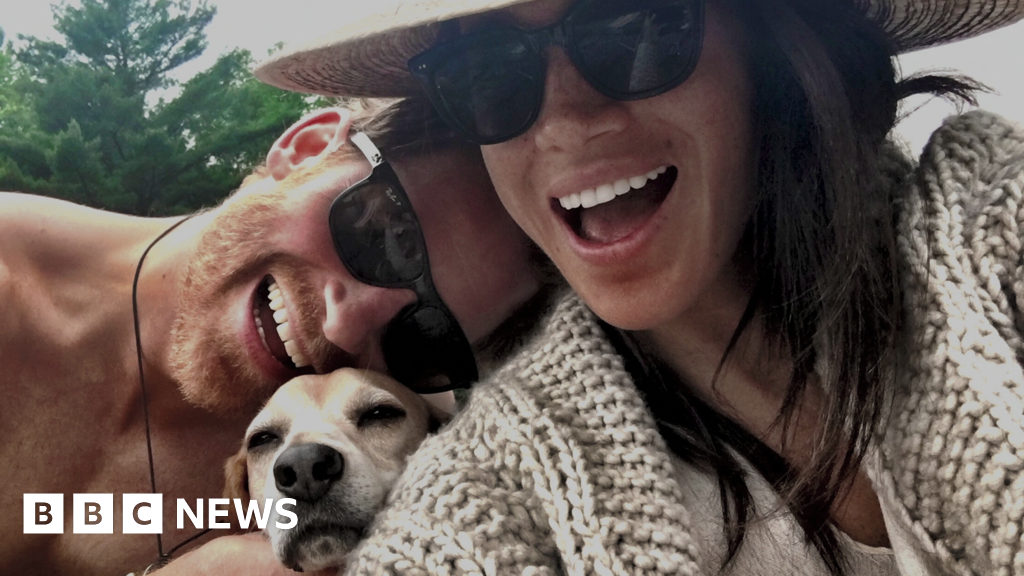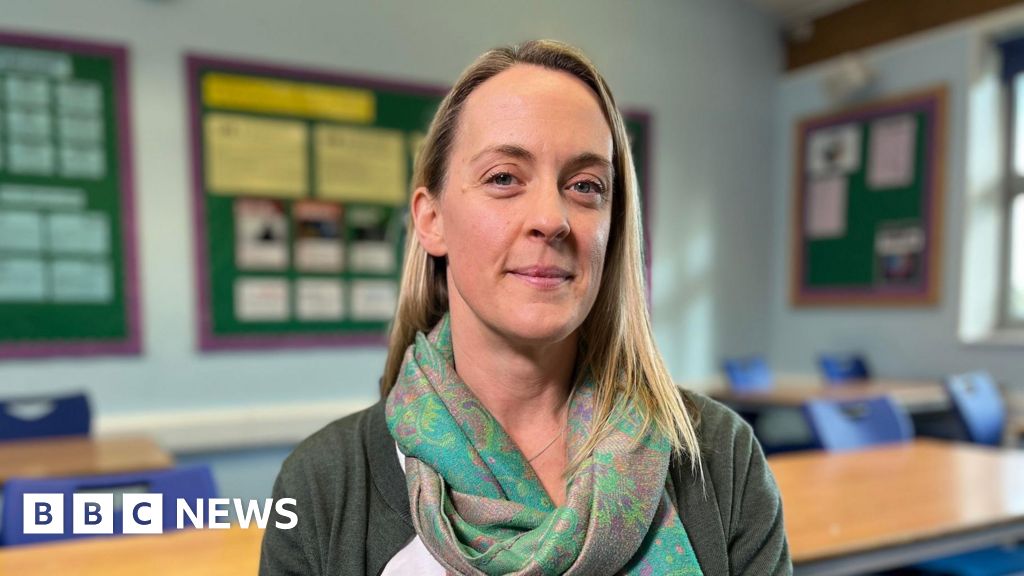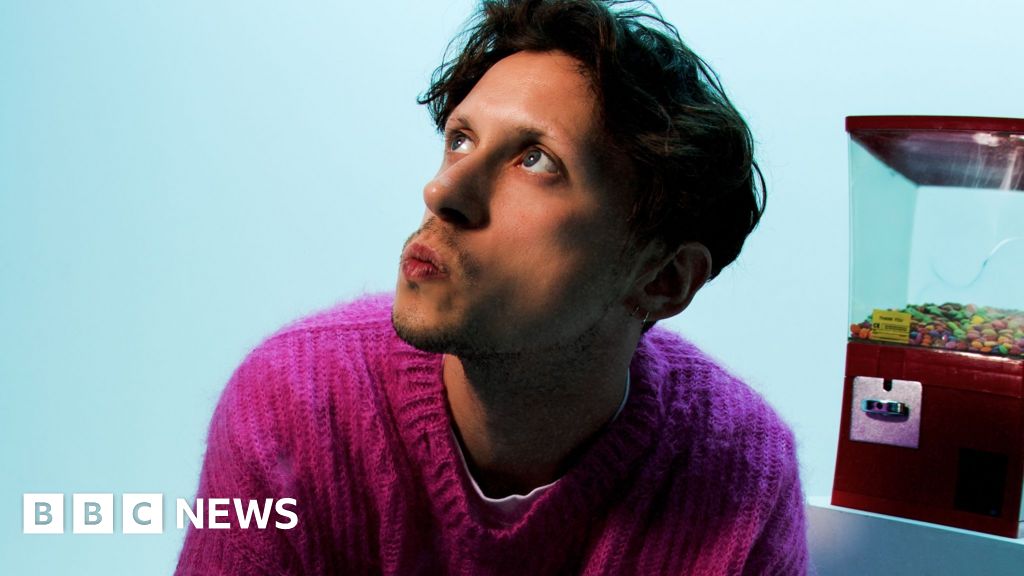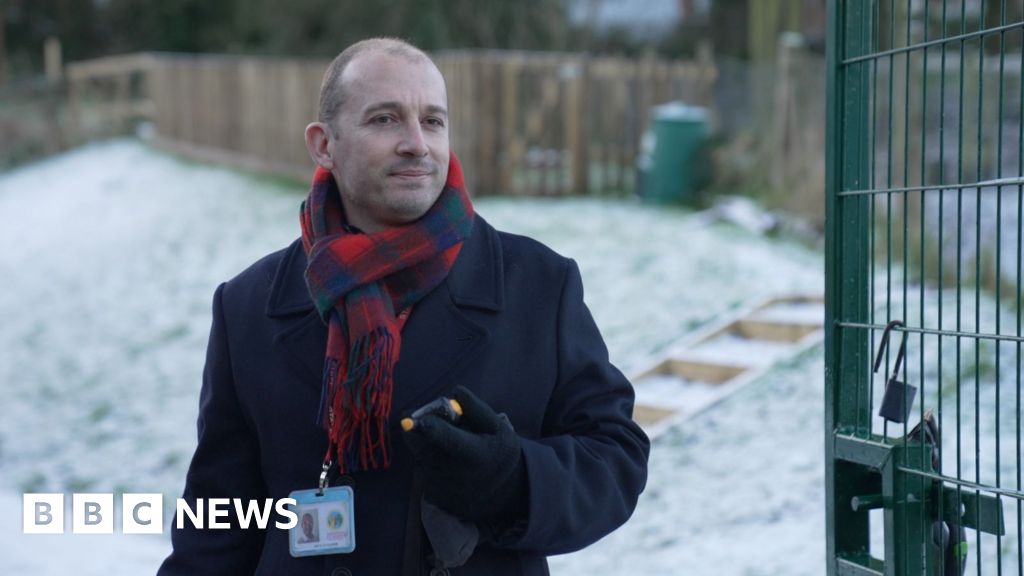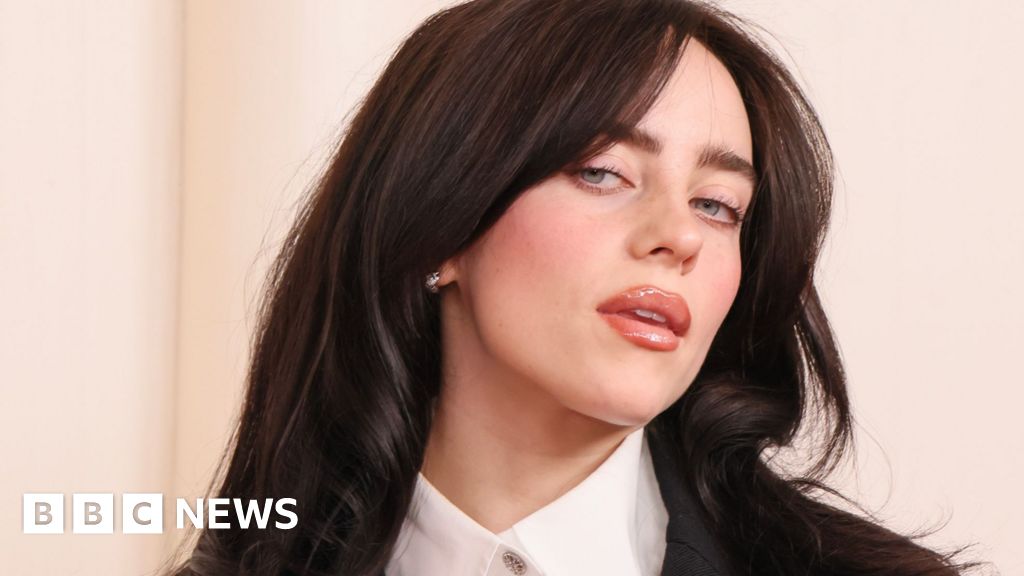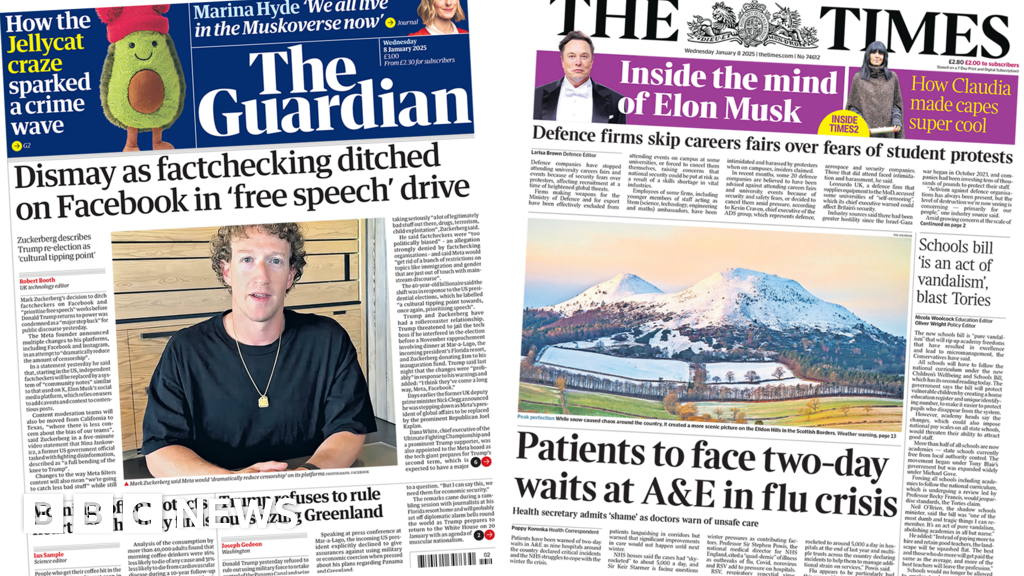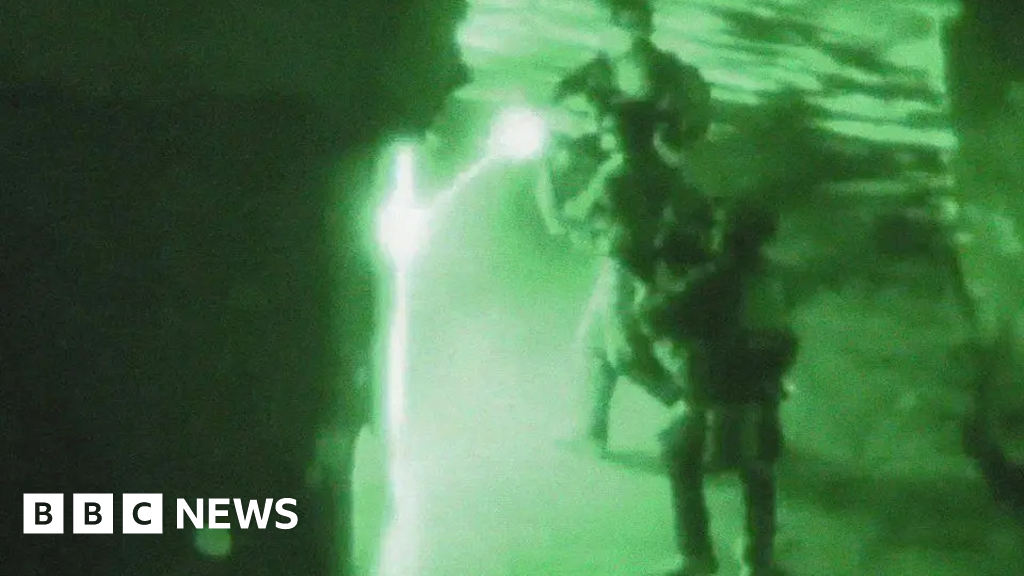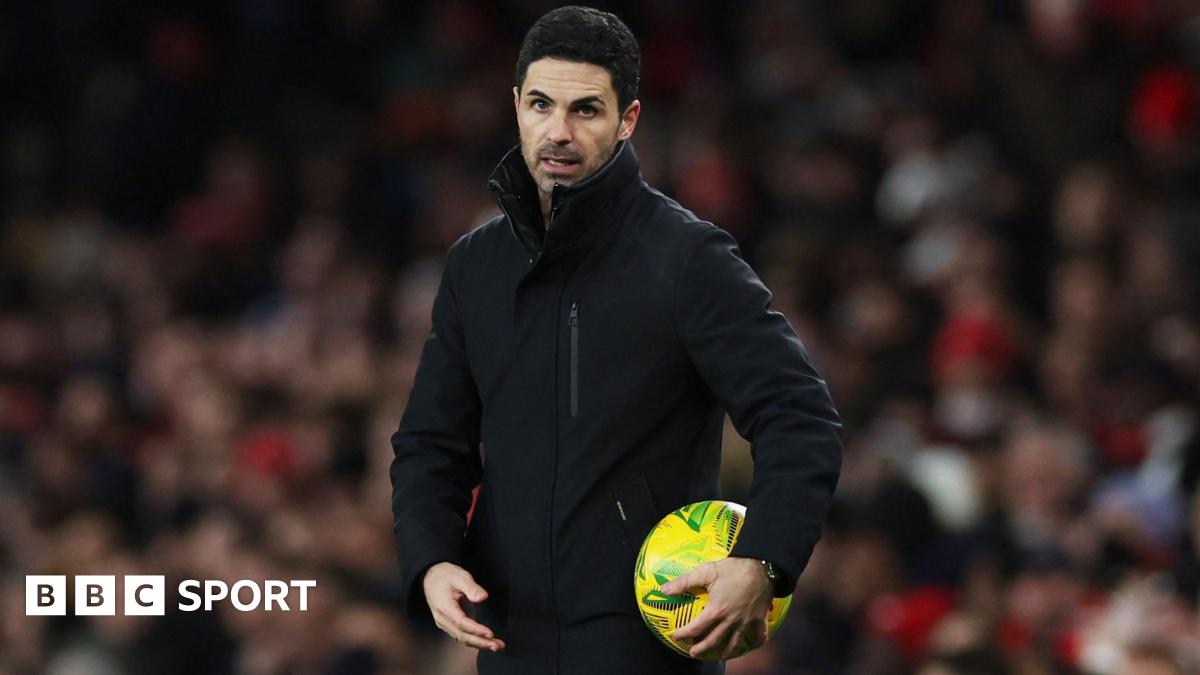
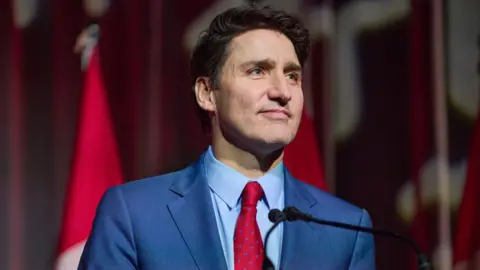 Getty Images
Getty Images
After weeks of mounting pressure to step down, Justin Trudeau has announced he will resign as Canada's prime minister and as leader of the Liberal Party of Canada.
The resignation brings a long political chapter to an end. Trudeau has been in office since 2015, when he brought the Liberals back to power from the political wilderness.
Trudeau said he will remain at the helm until a new Liberal leader is selected.
But many questions remain for the party, including who will take over and how they will manage a looming federal election. So what happens next?
What is a prorogued Parliament?
Addressing Canadians on Monday, Trudeau said the country's governor general had accepted his request to prorogue Parliament - essentially a suspension that will stop all proceedings, including debates and votes, without dissolving parliament.
While a routine part of parliamentary procedure, it is sometimes used by governments to buy time during a political crisis.
Parliament was most recently prorogued by Trudeau in August 2020, when his government was facing an ethics scandal over its handling of a contract with a charity.
This latest prorogation will freeze parliament until 24 March.
Who will lead the Liberals?
It is likely the Liberal caucus will try to have a new leader in place by the end of the prorogation period, though it is so far unclear how that leader will be chosen.
Typically, leaders of Canada's federal parties are chosen over a four or five month period, a process that includes a formal leadership convention.
On Monday, Trudeau said a new leader would be chosen through a "robust, nationwide, competitive process".
The president of the Liberal party, Sachit Mehra, said soon afterwards the party would convene a meeting of its national board this week to select a new leader.
There is no clear successor to Trudeau, but several prominent Liberals including former Finance Minister Chrystia Freeland, Transport Minister Anita Anand and formal central banker Mark Carney have been floated as possible leaders.
When is Canada's election?
Canada must have its next federal election by October, but it's likely a vote will be called before that.
Riding high in opinion polls with a double-digit lead, the official opposition Conservative Party have tried for months to trigger an election by bringing a series of no-confidence votes in the House of Commons.
The government needs the backing of a majority of the 338 members of parliament in a no-confidence vote. The Liberals are 17 seats shy of that, meaning they require support from members of Canada's other parties.
So far, members of the left-leaning New Democratic Party (NDP) have supplied Trudeau with enough votes to maintain control.
But on Monday, after Trudeau announced he would step aside, NDP Leader Jagmeet Singh said he would vote to bring down the Liberal Party, no matter who the leader is.
"They do not deserve another chance," he said.
Whoever is in charge of the Liberals by 24 March will not have much time to govern.
And after prorogation ends, the first vote will be a confidence motion. If the government loses that confidence motion, it is expected to resign or seek the dissolution of parliament, triggering a federal election.
Polls indicate that if a Canadian election were to be held today, the official opposition Conservative Party would win decisively.

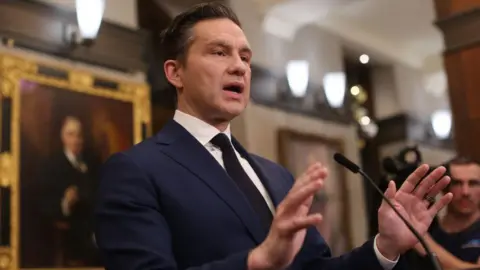 Getty Images
Getty Images
Who is Pierre Poilievre?
Pierre Poilievre is the leader of Canada's Conservative Party.
If opinion polls are any indication, he is odds-on favourite to be Canada's next prime minister.
Since taking over his party in 2022, Poilievre has been an especially formidable opponent to the prime minister, frequently calling on Trudeau to bring an early election.
Poilievre has branded himself as anti-elite and anti-Trudeau, a down-to-earth everyman.
He was ejected from Parliament in April after refusing to apologise for calling Trudeau a "wacko" and "extremist" during a question period.

 1 day ago
5
1 day ago
5
